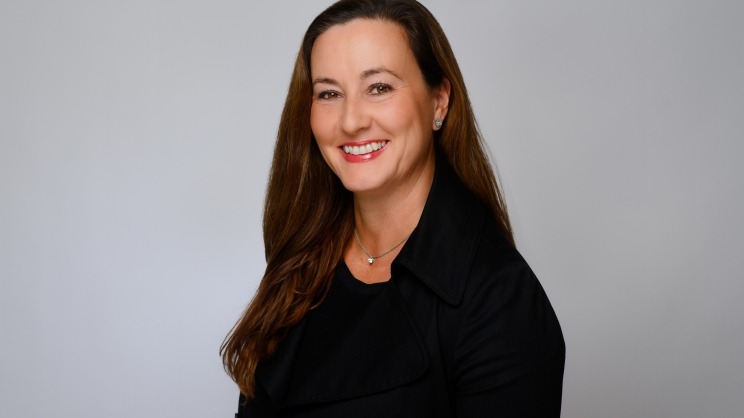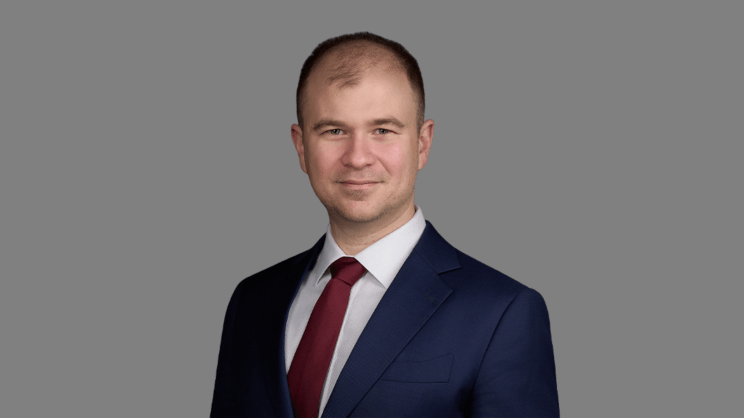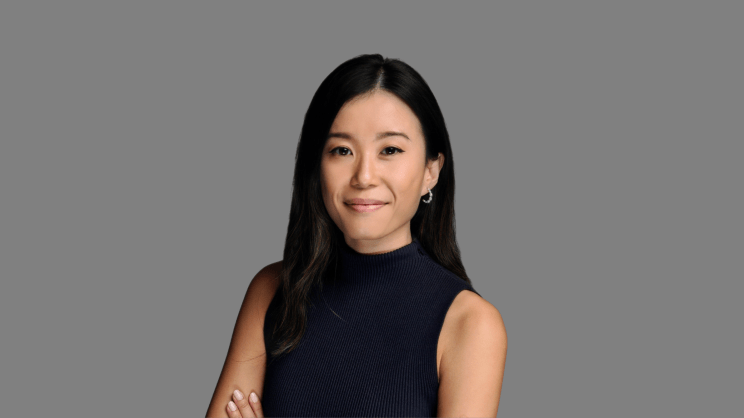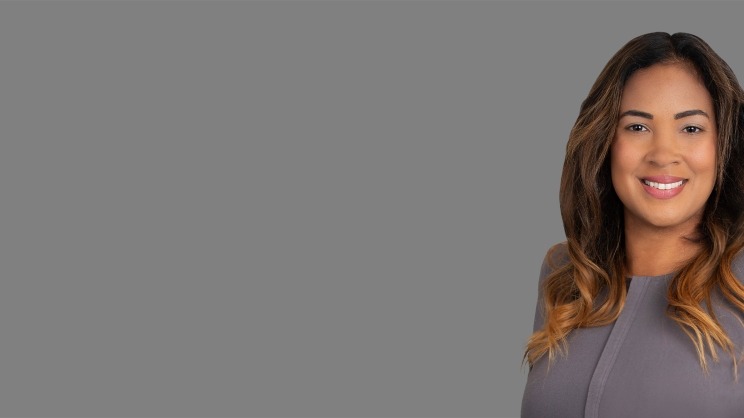Alumni Spotlight: Twila Day
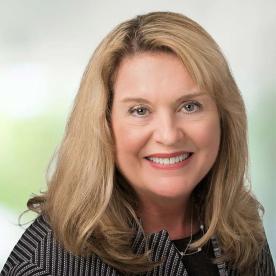
Twila Day, a former Managing Director with Alvarez & Marsal’s (A&M) Corporate Performance Improvement practice from 2013-2018, is currently Vice President and Chief Information Officer at Huntsman Corporation. Ms. Day is also a Director on Luby’s Inc. Board of Directors and PSS Industrial Group, a Goldman Sachs private equity company. Prior to A&M, she served at SYSCO Corporation for more than 20 years in a variety of positions, which culminated to her appointment as Senior Vice President, Information Technology and Chief Information Officer. In the Q&A below, Ms. Day shares her experience sitting on a board, what energizes her about her career, and her advice for the working mom.
You were already working in Information Technology when you graduated from Our Lady of the Lake University with a bachelor’s degree. Why did you initially pursue that career path?
My father, who worked in civil service for the Navy, gave me great advice when I was getting out of high school. He told me that many people who have the technology side don’t always understand the business side. I’m very analytical and I loved the computer programming classes I took in high school, but I wanted more emphasis on the business management side because of my dad’s advice.
Before joining A&M you worked at Sysco Corporation from 2006-2013 where you led the strategic change initiative to develop Sysco’s first mobile applications, consolidation, and hosting of infrastructure. Can you share with us some stories from your time there?
Sysco Corporation is where I really had the opportunity to take my early learnings in computer and information science and apply those in ways that allowed the business to accomplish their goals. When I started there, we were writing an ERP system from scratch and I was able to see how it transformed the business. We were able to prepare for future business goals that were not known at the time. It was a wonderful experience to see it in action and come to fruition.
Another initiative was centered around the customer. For instance, we wrote a new customer order entry system. I led the development efforts and got to visit and see customers first-hand and see what was working and what wasn’t working.
I was at Sysco for 21 years. At the end of my time at Sysco, we realized we needed a newer platform, an ERP (enterprise resource planning) system, to take the business to a new level. When I started at Sysco it was a $9 billion company and when I left it was a $48 billion company. I witnessed a lot of change over my tenure from new acquisitions to how they executed the business.
You’ve been a VP CIO at Huntsman Corporation since 2018. If you had to summarize what life is like inside of Huntsman Corporation, what would you say?
Huntsman is a publicly-traded global manufacturer and marketer of chemical products. Our customers are other manufacturers that take our product and put it into something else to make the products the end customers purchase (i.e., furniture, clothing, automobiles). This was the first time in my career where I worked for a company that did not sell directly to the end customer, so it was a different perspective of what the business needs are. There have been a lot of opportunities to clean up and standardize systems, opportunities to introduce better technologies or consolidate multiple solutions being used. Security has been a huge emphasis. This is the first time I’ve been in a CIO role where security has taken center stage, especially because of the operational technology side of the plants.
Culturally, Huntsman is very family oriented. The founder of the business, John M. Huntsman, passed right before I started, and now his son, Peter R. Huntsman, is President and CEO.
What’s a career highlight you’re most proud of?
I’m most proud of creating working environments for the employees where they feel appreciated and where they are able to excel. While the technology side is a really important part of my job to enable the business to be successful, it is also important when we have employees who enjoy their jobs and their working environments.
What energizes you about your career?
I like to learn new things. I am always interested in learning and experiencing something that is different. For me, if I get the opportunity to learn and contribute to the business and people, that’s what energizes me.
When you look back, everything is 20-20, and you see how all the pieces were meant to happen and come together. You don’t understand when you’re going through it what the purpose is of what’s happening or the reason for the trials of what you’ve been going through. But where I sit, just turning 60 in December, working for 40 years, I can now look backwards and see how everything weaves together over time. Sometimes you don’t really understand the why - like why I got laid off from the same company three times – but ultimately that’s what gave me the opportunities to get into the true technology role. When I left Sysco, I thought I was going to retire. Then I went to A&M and that led me to Huntsman.
How did you come to join the Luby’s board? And what advice would you give to someone who is trying to join a board?
A Sysco board member sat on the Luby’s board. She was retiring and the board asked her for a recommendation, and she gave my name. It was through that direct relationship that she thought of me.
When I joined the Luby’s board, the economy was good and it was a great experience coming on because it’s such a family-oriented business. I had just started at Huntsman, and I had been trying to get on a board for a while. I was very grateful that the executives at Huntsman allowed me to do this because it was very important for me to get on my first board. Then the economy dipped and COVID hit, and it had such a negative impact across the board and Luby’s struggled. The Board made the decision to liquidate, and we’ve been selling off the company and the real estate. I never thought that I would get the experience going through this process of liquidation and having the opportunity to be a part of this change. Although the business has struggled and it has been sad to see them go through this, it has been a wonderful learning opportunity.
You’ve had an amazing career trajectory. To what do you attribute your success?
One of the most important things, to me, has been to work hard in whatever role I am in. I tried to participate in new things going on because it satisfied my need to learn and do things differently. I also had some wonderful supporters and mentors in my career. I was given chances in roles that maybe somebody else might say “Is that the best thing to do?” At Sysco, I was one of the top IT female leaders. I considered that an honor and was grateful I was given that opportunity. I didn’t hesitate to talk to various people about my interests and where I wanted to go. I asked for help or information on what I could do to be more prepared. I also tried not to get ahead of myself. I didn’t know early in my career that I wanted to be a CIO. When I knew I wanted the role, I learned what I needed to get prepared by asking for help from various sponsors. It helps to surround yourself with people who can help you with what you set your sights on.
How do you differentiate yourself from other leaders?
My roles in leadership have been just as much about the people as the work. Even when I am faced with difficult decisions, cost cutting or change in business, I always look to see what I can do on the people side to make an easier transition, and that we don’t forget about treating people fairly and with respect. I try to bring the people side to the forefront.
What ultimately brought you to A&M?
Mike Davidson and I worked together at Sysco when he was at a different consulting company. We worked together on the ERP implementation. Mike came to me and said, “We think you would be great in this role.” I had the opportunity to go to a leadership meeting prior to joining A&M and I saw all the mentoring awards being given out in the room. It impressed upon me how important the people are to the firm. The deciding factor was the culture at A&M, the focus was on the people and acknowledging where people are helping and doing extraordinary things. My relationship with Mike and meeting a few other people in the technology practice made me feel that I could have a great time at A&M using my skill set matched with the consultant skill set to help clients.
I had been at Sysco a long time and the opportunity at A&M would provide me with a chance to work in different industries and projects and people. I didn’t consider the move a risk, I considered it a great advantage for me. But I also felt that I could give back to the firm. I really enjoyed the different projects and it helped me to broaden my horizons and thought process. My time at A&M was fascinating and I loved the variety it provided me and the experience I was able to gain.
Who do you consider to be your closest mentors during your time at A&M? What is the best piece of advice you have received from a mentor?
I’ve had many mentors at A&M; Mike Davidson , Richard Holt , and Greg Hatch .
Greg was the main practice leader when I came in and took me under his wing. He answered my questions and provided help and explained more about projects that had been done in the past. He let me know where to go, who to talk to and never hesitated to help me answer questions or help figure out what the best course of action was. I consider him to be my primary helper while I was at A&M. We didn’t work on projects together, but we would talk about the projects we were working on.
Richard was more on the business side and I did work with him on projects. I spent more time working on projects with him and learning more about the non-technology side and learning from him how he handled and celebrated projects with the people.
Mike helped in the very beginning and all along. Mike was, and is, a great leader overall. He was always there if I needed to ask something.
I would also say some of the younger consultants helped me understand more about why they were in consulting and the projects they were working on.
The best piece of advice is always keeping the customer happy. We always made sure the work we delivered was high quality and that the client was happy with the work that we had done. This ensured that our name and reputation remained solid. Because in the end the reputation of the great work of A&M is what got us more opportunities. A&M is known for their quality of work, and I tried to live by that.
You have had many noteworthy clients over the years. Can you share with us any A&M memories that stand out?
We did some work for a client here in Houston, and we had the opportunity to help with their IT organization strategy and transition. I got to do a reference for their next CIO, and I thought that was really a lot of fun to be able to participate in the process, even after we had finished the project.
A lot of times when you are on these projects you don’t know what happened after you left if you’re not keeping in touch with the people. For me, continuing those relationships are extremely important. I have kept up with the prior CIO, she went on to work for a train company up in the Northeast. I treasure that she still calls me from a career or technology perspective. The whole point with clients is not just about the project you’re doing, it’s about the long-term relationships that you are able to establish after the project is completed. I was always on the execution side and I was used to seeing things all the way through and see the business change. For me, those extensions outside of the projects were always extremely important.
Do you have any personal mottos that you work and live by?
“I am the only one that can set my boundaries.”
I am married with five children. My husband had an executive job as well. I am the one to establish my own work-life balance. I am responsible for the boundaries of what I will and will not do from a perspective of faith, of what’s right and wrong, or family commitments. And no one can set them for you.
I have always worked hard at doing a good job, and doing the job well is your first foundation to being able to do anything else. I was never afraid to take on new and challenging responsibilities or ask to participate in things. Anything you learn is knowledge that no one else can take away from you. You may not understand how you will use it, but it will come into play some day.
What’s a piece of advice you would have given to your younger self?
Every single person that I met was important in some way and I should have kept up with more of those relationship over the years. Every single person matters and has value. Somehow, someway, down the road.
When I was younger, I did not fully understand the power of relationships and the power of sponsorships and mentoring. That was something I fully understood later in my career. A lot of time people don’t foster those relationships and when they need help, they then reach out. But by then, the individual doesn’t remember you and it’s harder to get the help if you haven’t fostered those relationships. Before A&M, I was involved in lot of different organizations, and I always tried to help when people reached out. But when I came to A&M, I didn’t realize how those past relationships that I had built would help me be successful at A&M.
What advice would you give to the working mother?
One of our Sysco board members who was in her 80s told a group of women to ”get help.” Hire people to do as many tasks and chores as you can because it’s OK. It is OK that you’re not doing the laundry, cleaning, cooking. It leaves you the time to spend true quality time with your family. It’s important that when I’m home on the weekends that I can spend time with my family. I would always prioritize my work week if my children had games or activities so that I could go and watch them. I couldn’t do things during the day like the other mothers. I won’t say it’s guiltless because you want to do more as a mom, wife, grandmother.
Early on in my career we couldn’t afford a nanny, but I had a mother-in-law who stepped in and helped us. If we had to travel, my mother-in-law could be relied upon. With our youngest two children, I had a wonderful nanny that stayed with us and helped take them to the doctor, pick them up from school, housecleaning, laundry. And it made it possible for me to have an executive career. My husband was a very participating father, and it is, and has, been a true partnership.
I was only able to do what I did because I had people that picked up the pieces that I wasn’t able to do. It’s prioritizing what you want to do versus what you’re willing for someone else to do. A lot of women in executive level roles have husbands who take on that role. You cannot do everything at the same time, you just can’t. It’s like juggling balls in the air – you have to hand off to someone else or it will drop.
Using five adjectives or short phrases, how would you describe yourself?
I am a genuine person.
My beliefs are very important to me.
I am passionate.
I am a logical and strategic person in everything, not just work, in life in general.
And I’m caring at the same time.
What’s your favorite book? And why?
My favorite book is the Bible. I love to learn different aspect of the Bible, especially the New Testament. I love learning about what God has in store for us. When I’m anxious or struggling, I am able to turn to the Bible and find passages that help me. And at the same time, I can find passages that provide love and encouragement.
I also really enjoy lighthearted murder mystery and women detective books like Sue Grafton and Janet Evanovich.
What’s your favorite way to spend a day off?
Normally it has something do with my family or my seven grandkids. I like to cook, and a lot of our time together is centered around food. I also love the water, boating, and fishing. And I like to read.
What’s next for you?
I am currently on two boards, Luby’s and PSS Industrial Group, a Goldman Sachs private equity company, and at some point, I will retire and do board work part time. It’s a great way to use my knowledge to further help companies.
Anything we didn’t ask that you would like to share?
Everyone should stay true to themselves. Don’t let any job define who you are because it’s a job, not who you are. And don’t lose sight of that. If you let the job define you, you’re maybe missing out on some other things that you would really enjoy. In the end, if you’re unhappy, it’s not worth it, it’s a job.
